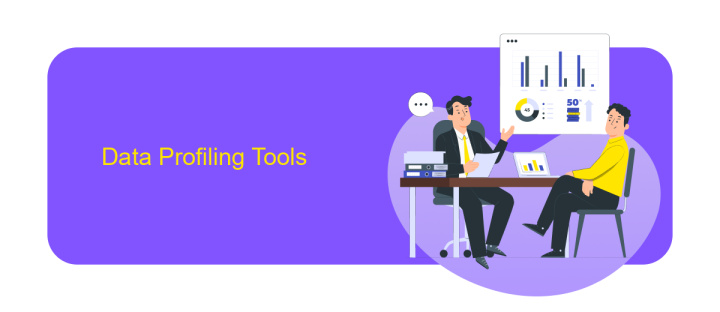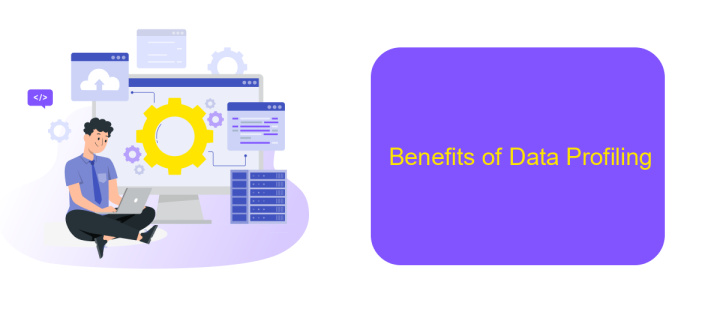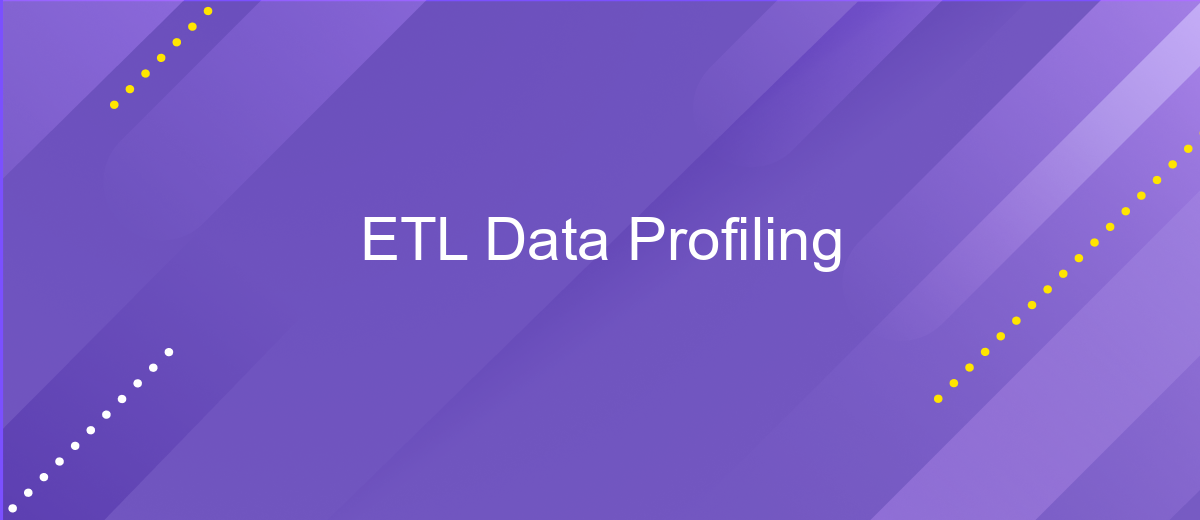ETL Data Profiling
ETL Data Profiling is a crucial step in the data integration process, ensuring data quality and consistency before it is loaded into a target system. By analyzing source data, identifying anomalies, and assessing data structure, ETL data profiling helps organizations make informed decisions, streamline workflows, and maintain data integrity. This article explores the key aspects and benefits of ETL data profiling in modern data management.
Introduction
ETL Data Profiling is a critical step in the data integration process, ensuring data quality and integrity before it is loaded into the target system. This process involves analyzing the data to understand its structure, content, and interrelationships. By performing data profiling, organizations can identify data anomalies, inconsistencies, and redundancies that could impact the accuracy and reliability of business intelligence and analytics.
- Identifying data quality issues such as missing values and duplicates
- Understanding data distributions and patterns
- Ensuring data consistency across different sources
- Validating data against predefined rules and standards
Effective ETL data profiling can be enhanced with integration services like ApiX-Drive, which streamline the process of connecting and automating data flows between various applications. By leveraging such tools, organizations can save time and resources while ensuring that their data is accurate and ready for analysis. Ultimately, thorough data profiling leads to better decision-making and more reliable business insights.
Data Profiling Tools

Data profiling tools are essential for ensuring the quality and consistency of data within ETL processes. These tools help in analyzing and understanding the structure, content, and relationships within a dataset. Popular data profiling tools include Talend, Informatica, and Apache Griffin. These platforms offer features such as data validation, anomaly detection, and metadata management, which are crucial for maintaining data integrity. By using these tools, organizations can identify data quality issues early and take corrective actions before the data is loaded into the target system.
In addition to standalone data profiling tools, integration services like ApiX-Drive can enhance the ETL process by automating data transfers between various applications and databases. ApiX-Drive supports a wide range of integrations, allowing users to streamline their data workflows without extensive coding. This flexibility ensures that data is consistently profiled and transferred across different systems, reducing the risk of errors and improving overall data quality. Utilizing such services can significantly reduce the time and effort required for data profiling and integration, enabling organizations to focus on deriving insights and making informed decisions.
Data Profiling Techniques

Data profiling is an essential step in the ETL process, helping to ensure data quality and integrity before it is used for analysis. Several techniques are commonly employed to profile data effectively.
- Column Analysis: This technique involves examining individual columns within a dataset to identify patterns, distributions, and anomalies. It helps in understanding the data types, missing values, and unique values.
- Cross-Table Analysis: This method compares data across multiple tables to identify relationships and inconsistencies. It is useful for verifying foreign key relationships and ensuring referential integrity.
- Pattern Matching: This technique uses regular expressions and other pattern recognition methods to validate data formats and identify outliers. It is particularly useful for ensuring data conforms to expected formats.
- Statistical Analysis: Applying statistical methods to data can reveal trends, averages, and deviations. This helps in understanding the overall data distribution and identifying potential data quality issues.
- Data Integration Tools: Services like ApiX-Drive can automate data profiling by integrating various data sources and applying profiling techniques to ensure data consistency and quality across systems.
By employing these data profiling techniques, organizations can ensure their data is accurate, reliable, and ready for analysis. This step is crucial for maintaining data integrity and making informed business decisions.
Benefits of Data Profiling

Data profiling is a crucial step in the ETL (Extract, Transform, Load) process, providing numerous benefits to organizations. By analyzing data before it is loaded into a destination system, companies can ensure that their data is accurate, complete, and consistent.
One of the primary advantages of data profiling is the ability to identify and rectify data quality issues early in the process. This proactive approach helps to prevent downstream problems that could arise from inaccurate or incomplete data, ultimately saving time and resources.
- Improved data quality and consistency
- Enhanced decision-making capabilities
- Increased efficiency in data integration processes
- Reduced risk of data-related errors
Furthermore, data profiling can facilitate smoother integration of data from various sources. Tools like ApiX-Drive can simplify this process by automating data transfers and ensuring that data is properly formatted and validated before it reaches its destination. This not only streamlines operations but also enhances the overall reliability of the data integration process.
Conclusion
In conclusion, ETL Data Profiling is an essential process for ensuring data quality and integrity within any data integration project. By systematically analyzing and validating data, organizations can identify inconsistencies, anomalies, and potential issues early in the data pipeline. This proactive approach not only enhances the reliability of the data but also streamlines the decision-making process by providing accurate and consistent information.
Moreover, leveraging tools like ApiX-Drive can significantly simplify the integration and profiling process. ApiX-Drive offers seamless connectivity between various data sources and applications, enabling automated data transfers and real-time synchronization. By incorporating such services, organizations can reduce manual efforts, minimize errors, and ensure that their ETL processes are both efficient and effective. Ultimately, investing in robust ETL Data Profiling practices and utilizing advanced integration tools can lead to more informed business decisions and a competitive edge in the data-driven marketplace.
FAQ
What is ETL Data Profiling?
Why is Data Profiling important in ETL processes?
What are the common techniques used in Data Profiling?
How can I automate Data Profiling in my ETL processes?
What are the challenges faced during Data Profiling?
Apix-Drive is a simple and efficient system connector that will help you automate routine tasks and optimize business processes. You can save time and money, direct these resources to more important purposes. Test ApiX-Drive and make sure that this tool will relieve your employees and after 5 minutes of settings your business will start working faster.

